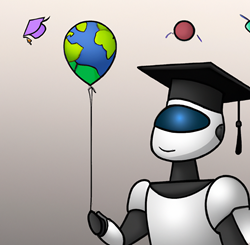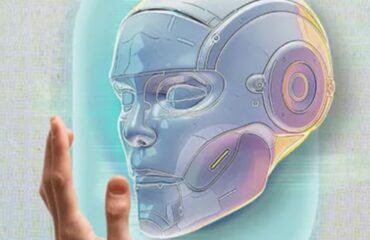By Attorney Shiran Horowitz Hilleli
With the continuous development of technology, artificial intelligence (AI) is changing the face of the world in various ways. Academic fields and education are no exception, as AI offers new and revolutionary possibilities.
The expected impacts of AI on the academic world:
In recent years, there has been an apparent increase in awareness of the quiet revolution, and we are all slowly being exposed to the AI revolution. With the continuous development of technology, AI is changing the face of the world in various ways. Academic fields and education are no exception, as AI offers new and revolutionary possibilities. Now, the AI revolution is also coming to campuses and penetrating the academic world, partly to improve and streamline the academic system in every possible way.
AI can provide many new and innovative insights for students and lecturers; unique tools such as creating songs and creating art based on data; tools that will undoubtedly change the shared learning experiences that everyone knows, and provide new, original, and exciting ways to explore and learn. AI, known for its incredible capabilities, can also assist in automating processes in academia. I analysed data, wrote documents, and even ran experiments in the lab. This will undoubtedly allow lecturers and researchers to save a lot of time and effort and allow them to focus on advancing and promoting their work more efficiently and quickly.
It can also analyse the learning habits and pace of progress of each student, which will allow for the dynamic adaptation of the learning material and teaching method to that student’s unique needs. Not only that, BUT AI can ALSO assist in research and writing articles, which naturally will provide relevant and good sources of information for research, and even examine them and recommend accordingly on drafts of articles before publication.
AI can analyse learning behaviour and patterns of student success in a way that will allow staff and relevant stakeholders to identify students with a high risk of dropout in advance and address this quickly and effectively, which could prevent the said dropout in time.
AI provides everything a student is looking for in an academic institution they want to study at and everything a leading and respected academic institution offers. Indeed, AI provides lecturers and management staff with a wealth of information, which allows for the renewal and upgrading of study programs. It can identify the most popular courses, analyse labour market requirements, and provide information on new and emerging areas accordingly. This allows the academic institution to update study programs, add new courses, and adapt to the changing market and employment requirements. These are just a tiny fraction of the many and endless examples that AI is becoming an essential tool for leading academic institutions that want to maintain technological leadership.
Therefore, we agree that AI is a fascinating and versatile tool that can significantly improve the academic world (and the world as a whole) in a meaningful way that will have a significant and positive impact on the world of education and research.

In short, AI has the potential to revolutionise the academic world in several ways. For example, AI can be used to:
- Provide new and innovative learning experiences for students.
- Automate tasks for lecturers and researchers, freeing up their time for other activities.
- Identify students at risk of dropping out and provide them with support.
- Help academic institutions to stay up to date with the latest trends
The author concludes that AI is a powerful tool that can be used to improve the academic world in a variety of ways.








